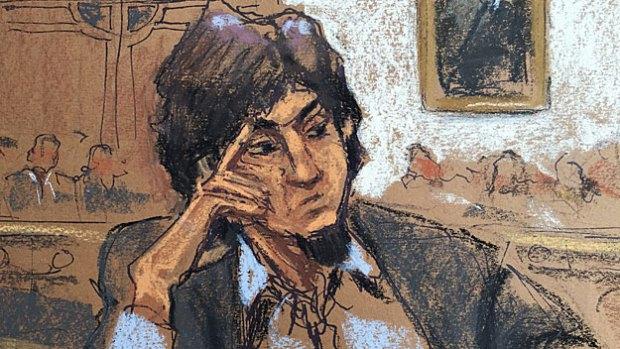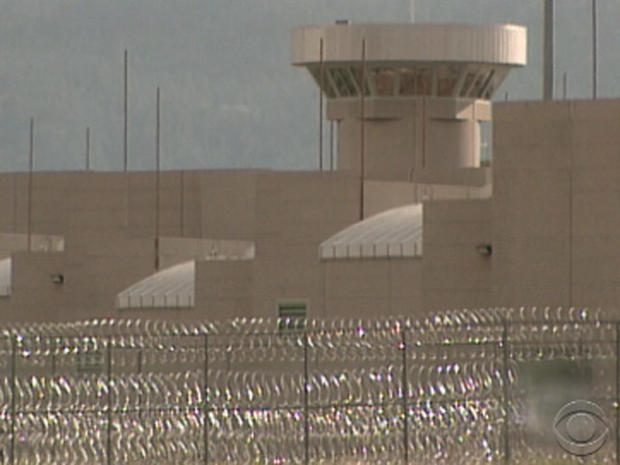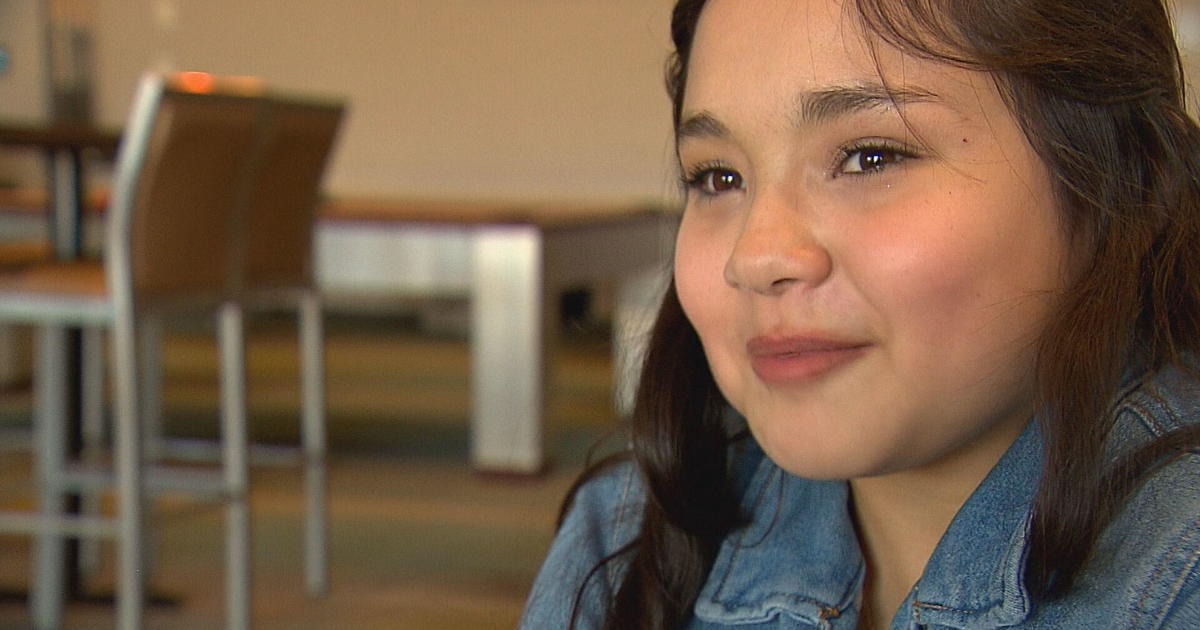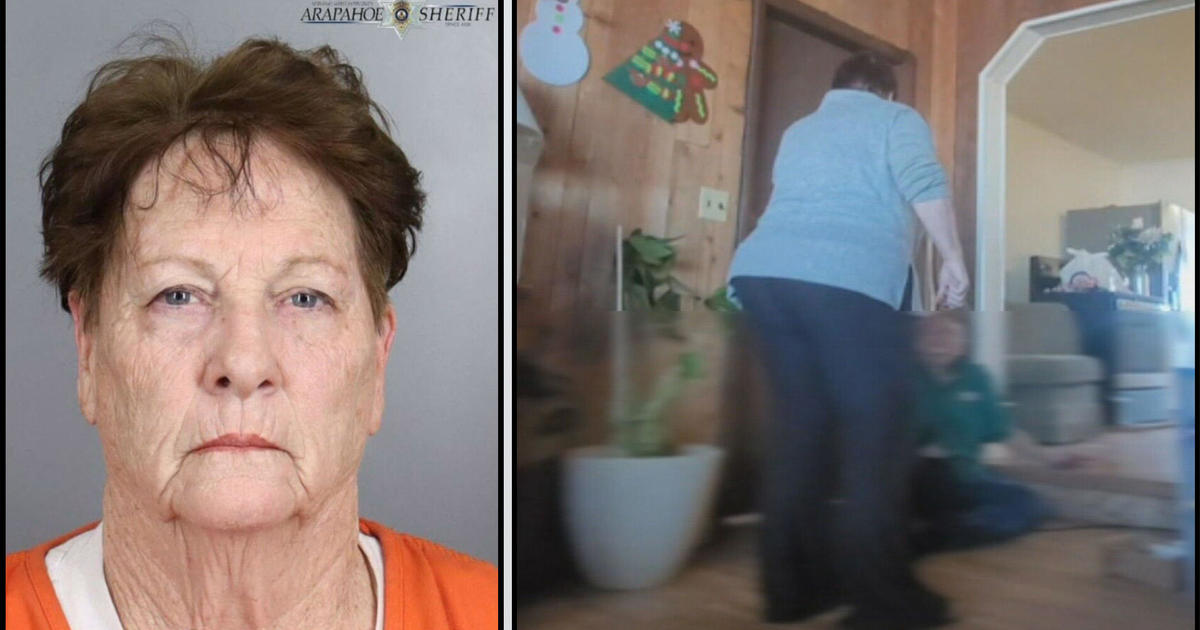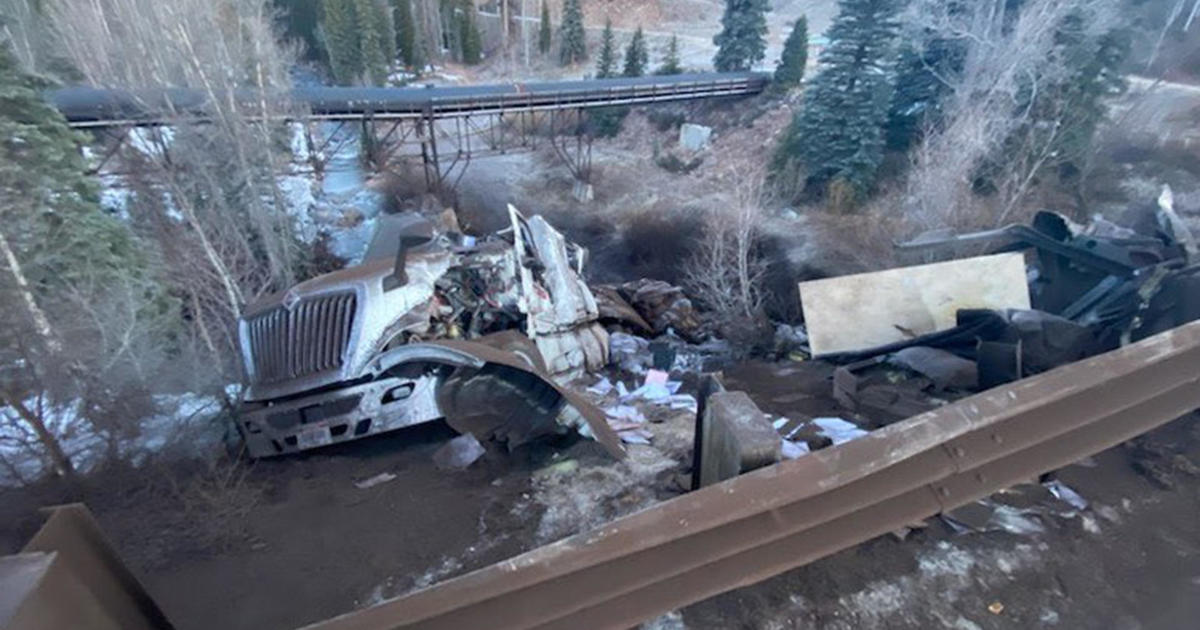Tsarnaev Could Be 1st Terrorist Executed In US Since 9/11
BOSTON (AP) — The death sentence jurors imposed on Boston Marathon bomber Dzhokhar Tsarnaev sets the stage for what could be the nation's first execution of a terrorist in the post-9/11 era, though the case is likely to go through years of appeals.
In weighing the arguments for and against death, the jurors decided among other things that Tsarnaev showed a lack of remorse. And they emphatically rejected the defense's central argument — that he was led down the path to terrorism by his big brother.
The Friday decision — which came just over two years after the April 15, 2013, bombing that killed three people and wounded more than 260 — brought relief and grim satisfaction to many in Boston.
"We can breathe again," said Karen Brassard, who suffered shrapnel wounds on her legs.
A somber-looking Tsarnaev stood with his hands folded, his head slightly bowed, as he learned his fate, sealed after 14 hours of deliberations over three days. His lawyers left court without comment.
RELATED STORIES: Dzhokhar Tsarnaev Archive Stories
His father, Anzor Tsarnaev, reached by phone in the Russian region of Dagestan, let out a deep moan upon hearing the news and hung up.
The 12-member federal jury had to be unanimous for Tsarnaev to get the death penalty. Otherwise, the former college student would have automatically received life in prison with no chance of parole.
Tsarnaev was convicted last month of all 30 charges against him, including use of a weapon of mass destruction, for joining his now-dead brother, Tamerlan, in setting off two shrapnel-packed pressure-cooker bombs near the finish line of the race. Tsarnaev was also found guilty in the killing of an MIT police officer during the getaway.
Seventeen of the charges carried the possibility of a death sentence; ultimately, the jury gave him the death penalty on six of those counts.
The speed with which the jury reached a decision surprised some, given that the jurors had to fill out a detailed worksheet in which they tallied up the factors for and against the death penalty.
The jury agreed with the prosecution on 11 of the 12 aggravating factors cited, including the cruelty of the crime, the extent of the carnage, the killing of a child, and Tsarnaev's lack of remorse.
"Today the jury has spoken. Dzhokhar Tsarnaev will pay for his crimes with his life," said U.S. Attorney Carmen Ortiz.
With Friday's decision, community leaders and others talked of closure, of resilience, of the city's Boston Strong spirit.
"Today, more than ever, we know that Boston is a city of hope, strength and resilience that can overcome any challenge," said Mayor Marty Walsh.
In weighing the mitigating factors, only three of the 12 jurors found Tsarnaev acted under the influence of his brother.
The defense argued that sending him to the high-security Supermax prison in Colorado for the rest of his life would be a sufficiently harsh punishment and would help the victims move on without having to read about years of death row appeals.
Massachusetts is a liberal, staunchly anti-death penalty state that hasn't executed anyone since 1947, and there were fears that a death sentence for Tsarnaev would only satisfy his desire for martyrdom.
But some argued that if capital punishment is to be reserved for "the worst of the worst," Tsarnaev qualifies.
Tsarnaev's chief lawyer, death penalty specialist Judy Clarke, admitted at the start of the trial that he participated in the bombings.
But Clarke argued that Dzhokhar was an impressionable 19-year-old led astray by his domineering 26-year-old brother, Tamerlan. The defense portrayed Tamerlan as the mastermind of the plot to punish the U.S. for its wars in Muslim countries.
Tamerlan died days after the bombing when he was shot by police and run over by Dzhokhar during a chaotic getaway attempt.
Prosecutors depicted Dzhokhar as an equal partner in the attack, saying he was so coldhearted he planted a bomb on the pavement behind a group of children, killing an 8-year-old boy.
Jurors also heard grisly and heartbreaking testimony from numerous bombing survivors who described seeing their legs blown off or watching someone next to them die.
Killed in the bombing were Lingzi Lu, a 23-year-old Boston University graduate student from China; Krystle Campbell, a 29-year-old restaurant manager; and 8-year-old Martin Richard, who had gone to watch the marathon with his family. Massachusetts Institute of Technology police Officer Sean Collier was gunned down in his cruiser days later. Seventeen people lost legs in the bombings.
Tsarnaev did not take the stand at his trial and showed a trace of emotion only once, when he cried while his Russian aunt was on the stand.
The only evidence of any remorse on his part came from the defense's final witness, Sister Helen Prejean, the Roman Catholic nun and death penalty opponent portrayed in the movie "Dead Man Walking." She quoted Tsarnaev as saying of the victims: "No one deserves to suffer like they did."
U.S. District Judge George O'Toole Jr. will formally impose the sentence at a later date during a hearing in which bombing victims and Tsarnaev himself will be given the opportunity to speak.
Tsarnaev probably will be sent to death row at the federal prison in Terre Haute, Indiana, where Oklahoma bomber Timothy McVeigh was put to death in 2001.
By Denise Lavoie, AP Writer
(© Copyright 2015 The Associated Press. All Rights Reserved. This material may not be published, broadcast, rewritten or redistributed.)
